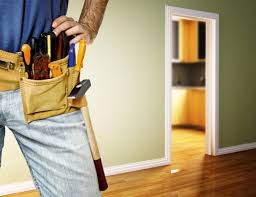A business That's dependent on the usage of heavy equipment has a couple Decisions to make about the way they'll acquire the equipment that's vital to finishing a job correctly, efficiently and on time. Your particular situation will be different than another construction or excavating company so it's difficult to simply get the required insights from a fellow business owner on what they do. You want to take into consideration a few distinct factors that will contribute to making the ideal choice for the energy and direction of your organization.

Your current financial state
The resources and skills available within your company for Inventory control and fleet management
The costs associated with buying and how they compare to Renting
Your need to have gear that is available at a minute's notice
If the owned or leased equipment will be used for your
The biggest deciding factor behind leasing or buying is how often and in What manner the heavy equipment is used. Undoubtedly there will be some specialization gear which will just be used for occasional jobs and is an easy renting choice. Together with the several uses for the great number of construction gear products there will likely be a couple of machines where it is not as clear whether leasing is your best option financially or buying will give you greater returns in the long term.
By doing a few Straightforward calculations, you can have a Fairly good idea of When it's best to rent construction equipment or if you'll obtain the most benefit from buying your gear.
DETERMINING YOUR UTILIZATION RATE
Ultimately the amount of use a certain machine gets will determine whether To lease or purchase your building equipment. There are a number of other factors to consider which will become involved, but if your organization uses a particular piece of gear most days and for your long-term, then it is probably easy to determine that a purchase is your best thing to do. While the character of future projects can alter you can calculate a best guess on your utilization rate from recent usage and projected jobs.
You pay for the use of gear only when you require it. The Lower upfront costs make renting the very best option in situations where you need equipment for specific jobs and will probably be making very good use of it to get your entire rental moment.
You do not have to deal with maintenance and breakdowns. As A leader in construction equipment rentals, our nine locations of NMC Rental Services and The Cat Rental Store are quick to fix any issues you may have with equipment productivity on the job site. We put our gear through a comprehensive care routine prior to each rental and can dispatch a field technician to a project site fast, 24 hours every day, to get you working again.
You've got the chance to be using the very best of building Gear technology. All equipment rental companies regularly upgrade their stock to newer versions and most recent technology in order that they can give the very best products to their customers. Some businesses will even rent simply to see just how much they enjoy the newer equipment they are taking a look at buying.
There'll be administrative work related to equipment management. Based on when and how often you rent, you will have just 1 bill and be in a position to be aware of the actual cost of equipment use for employment without having to perform extensive calculations of all the costs involved with owning and paying for your gear. You also don't need to manage other fleet management tasks such as inspections, transportation and storage of gear.
The option to lease some operational requirements allows for A reduced start-up capital for new ventures and also allows a company not to Have much capital tied up in equipment.


